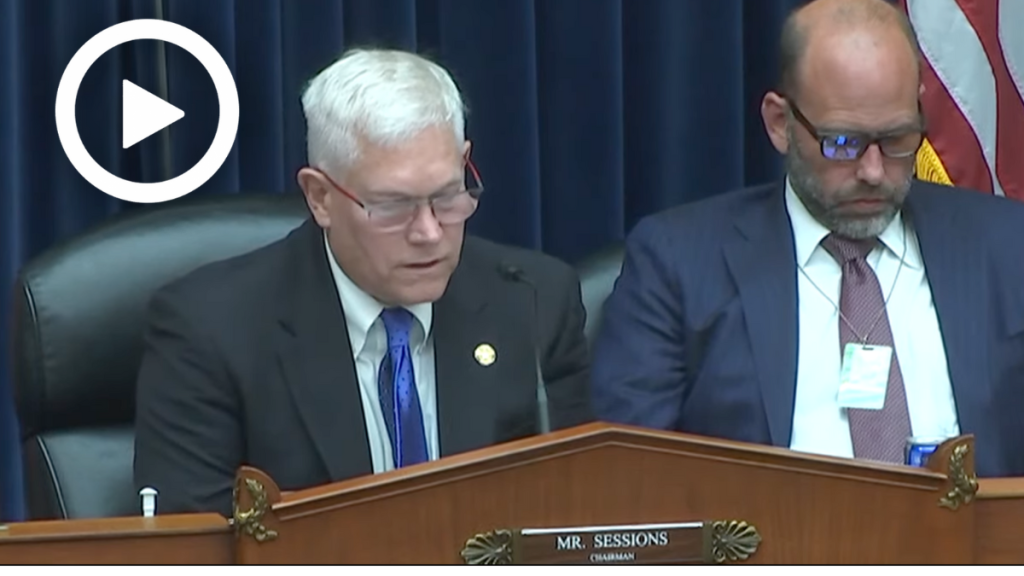Sessions: DOD Has Long Passed the Deadline for Personnel Vetting System Reform
WASHINGTON—Subcommittee on Government Operations and the Federal Workforce Chairman Pete Sessions (R-Texas) today delivered opening remarks at a hearing titled “Security at Stake: An Examination of DOD’s Struggling Background Check System.” Subcommittee Chairman Sessions discussed how the Department of Defense (DOD) has not delivered on its task to reform the federal personnel vetting system, which was initially supposed to be fully operational in 2019.
Below are Subcommittee Chairman Sessions’ remarks as prepared for delivery.
Welcome to today’s hearing on the Department of Defense’s National Background Investigation System.
A high-quality security clearance process is vital to the security of this nation.
As we have seen over the years, when sensitive information gets into the wrong hands, the result is far-reaching—compromising both the safety of the country as well as the lives of its citizens.
So, today’s discussion is an important one.
In 2015, the Office of Personnel Management announced that it had suffered a significant cyber-attack—one that exposed the personal information of millions of people.
In fact, over 21 million people, who completed forms for security clearance investigations and submitted fingerprints, had their personal information stolen by hackers.
The massive breach led to the security clearance process shifting to the Department of Defense, where it currently is today.
At that time, DOD was tasked with reforming the federal personnel vetting system. But so far, that task has not been fully delivered.
Hopefully, today’s hearing will help us understand why.
DOD conducts 95 percent of all background investigations for over 100 agencies—most of the personnel vetting for the entire federal workforce.
In 2016, DOD, through its Defense Counterintelligence and Security Agency—or DCSA—began crafting the idea of a new, innovative, personnel vetting information technology system.
That system is called the National Background Investigation Services system—or NBIS.
This product was supposed to be a “one-stop-shop” system, covering all phases of personnel vetting—electronic forms, managing investigations, recording decisions and much more. However, at this point, after all that planning, the system is only being used for the initial application portion of the vetting process.
In other words, NBIS is only able to handle the first planned capability that it was supposed to initiate back in 2016.
We are now in 2024.
Initially, DOD said the system would be fully operational in 2019. That deadline has long passed.
Next, they said the system would be fully up and running at the end of fiscal year 2024. However, recently users were instructed to stop using NBIS completely for the time being—and revert to the older system, which was supposed to be phased out by the fall of this year.
Even more troublesome, DOD hasn’t thoroughly planned for the cybersecurity of both systems—potentially exposing millions to the threat of another attack.
Like so many matters this Subcommittee addresses, today’s discussion is not a partisan one. I think my colleagues across the aisle will agree that these issues—ongoing delays with the rollout of an effective and efficient personnel vetting system—are important matters that affect everyone.
I think they would also agree that today’s discussion is not a bureaucratic formality, but a necessity. We must work together to ensure the security, efficiency and accountability of a system that plays a vital role in safeguarding our national interests.
Today, we are pleased to hear from David Cattler the Director of the Defense Counterintelligence and Security Agency and Alissa Czyz, Director of Defense Capabilities and Management, from the Government Accountability Office.
I look forward to working together to determine the best path forward for the National Background Investigation System.
And with that, I yield to the distinguished ranking member of the subcommittee, Mr. Mfume.

